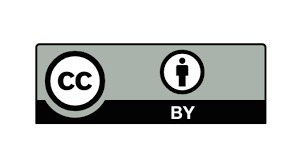La motivación y las matemáticas
La motivación y las matemáticas
Main Article Content
There is a brief point of opinion regarding the importance of motivation in the learning of mathematics this time, starting with the lack of enthusiasm and desire to learn from the students with whom, during the course of my Academic and observational work I have seen evidenced in the students to whom I have oriented this course for several years, and who have generally shown little interest in developing their learning in a least basic way to get ahead in their respective courses. We will analyze, some aspects like; What motivates me to do things, how have they motivated me to study, how have they motivated me to study mathematics?, through which we will try to understand and understand how motivation turns out to be a An important aspect in the learning process from the intrinsic and extrinsic point of view in the student. Also some aspects of how to motivate our students from our perspective of teachers.
Downloads
Article Details
Bacete, G., & Doménech, F. (1997). Motivación, aprendizaje y rendimiento escolar. Revista de motivación y emoción. Universidad Jaume I de Castellón, 1(6), 24- 35.
Bello, P. J. (1997). Motivación en tu vida. Venezuela: Editorial Panapo.
Corno, L. & Snow, R.E. (1986): Adapting teaching to individual differences among learners. En M. Wittrock (Ed.): Handbook of research on teaching. New York: McMillan
Corti, K. (2006). Games-based Learning; a serious business application. PIXELearning, 1-20.
Chiavenato, I. (1999). Administración de Recursos Humanos. Colombia: Editorial Mc Graw Hill
Dweck, C.S. y Elliot, E. S. (1986). Achievement motivation. En E.M. Hetherington (ed.) Socialization, personality and social development. Wiley y Sons, Nueva. York-USA.
Farías D. & Pérez J. (2010). Motivación en la Enseñanza de las Matemáticas y la Administración. Formación Universitaria, 3(6), 33-40.
Gonzalez, R., Valle, A., Nuñez, J., & Gonzalez, J. (1996). Una Aproximación Teórica al Concepto de Metas Académicas y su Relación con la Motivación Escolar. Psicothema, 8(1), 45-61.
Hernández, P. (2002). Psicología de la educación: Corrientes actuales y teorías
aplicadas. México D.F: Trillas S.A.
Johnson, D., Johnson, R., & Holubec, E. (1999). El aprendizaje cooperativo en el aula. Buenos Aires: Paidós.
Largo, M., Jaimes, P., & Largo, Y. (2014). Abordando el aprendizaje de las matemáticas. Revista Ecomatemático, 5(1).60-65
Leavitt, H. (1964). Managerial psychology. The University of Chicago Press, Chicago and London: University of Chicago
Malone, T., & Lepper, M. (1987). Making Learning Fun: A Taxonomy of Intrinsic Motivations for Learning. Lawrence Erlbaum Associates, 3(3), 223-253.
March, A. (2006). Metodologías activas para la formación de competencias. Educatio siglo XXI, 24, 35-56. McClelland, D. (1961). Teoría de las Necesidades
Miguez, M. (2005). El núcleo de una estrategia didáctica universitaria: motivación y compresión. Revista ieRed: Revista Electrónica de la Red de Investigación Educativa, 1(3), 1-11.
Piaget, J., (1968). Etapas del desarrollo cognitivo infantil. PP: 148-157 La motivación y las matemáticas
Ryan, R., & Deci, E. (2000). Intrinsic and Extrinsic Motivations: Classic Definitions and New Directions. University of Rochester, Contemporary Educational Psychology, 25, 54–67.
Robbins, S., & Judge, T. (1994). Comportamiento organizacional. Naucalpan de Juárez, Estado de México: Pearson Educacion.
Tapia, J. A., (2003). Motivar para Aprender. En: Herramientas para la Reflexión Pedagógica. Bogotá
Young A, J., Hawthorne M, & Pugh J. (2011). Cultural predictors of academic motivation and achievement: a self-deterministic approach. Callege Student Journal, 45(1), 151-163.
Zemelman, S., Harvey, D. Hyde A. (1998). Best Practice: New Standards for Teaching and Learning in America’s Schools, 2a ed., United States of America: Editorial Hinemann.







